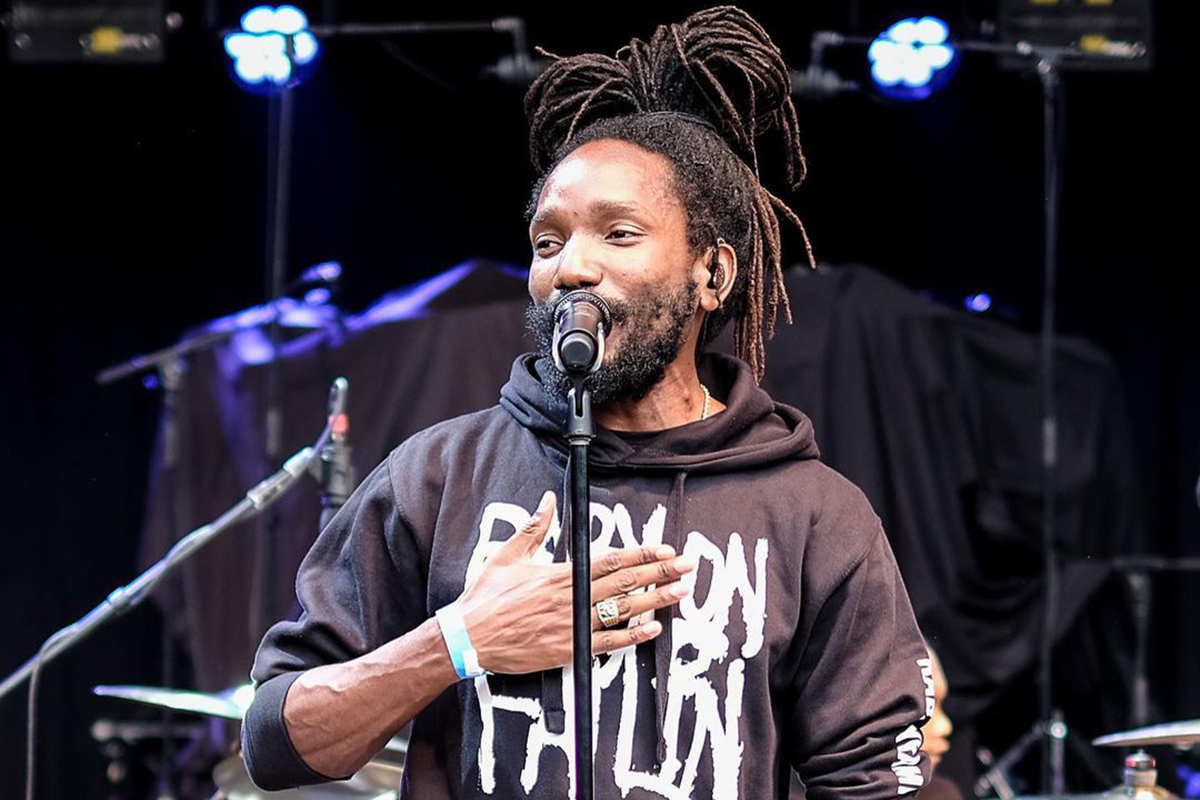Kabaka Pyramid Calls For “National Support For Arts And Culture”

Kabaka Pyramid has called for national support for Jamaica’s creative sector, and for local authorities to put structures in place to allow persons involved in musical and cultural activities, to benefit in a fulsome way, from the tourism industry.
Recently, the No Capitalist artist shared a video of himself walking the streets of Sao Paolo in Brazil, where vendors had been allowed to set up booths to peddle their wares to tourists and locals, and called for Jamaica to follow suit.
“Jamaica, oonu a si dis? Right now wi deh pan di main road of Sao Paolo… which is like Manhattan, and people set up dem art and craft, right pon di streetside. Everybody benefit from di tourist dem. Jamaica, wi can do dem ting yah enuh,” the 2023 Best Reggae Album Grammy winner stated.
“Jamaica listening??? We need national support for arts and culture. I was also told that this whole area is blocked off every Sunday, no motor vehicles allowed, for the people to fulljoy music and other cultural activities. EVERY SUNDAY. Only during Carnival I see dis gwaan a Jamaica,” he noted in the post’s caption.
His fans were supportive of his call, noting that once such an initiative is properly organised, it could provide a boon for creatives.
“Facts! It was one of the things that impressed me about Sao Paulo, spent a whole day outside shopping,” craftycrochet said.
“Real way king… it just need fi organize neatly, with the help of the gov’t. It actually need fi happen,” one man said, while another added: “We can and should do it to nurture and exhibit the music, arts, food, fashion and many aspects of the culture. Right on Port Royal St with food trucks. ferry shuttle from Victoria Pier to Port Royal, Kingston”.
However, some Jamaicans insisted that politicians would never allow artisans to line their tents within resort areas.
“A real talk king this is right up our alley but dem separate d tourists from the people to keep the currency flowing in dem hotels,” one man said while another quipped: “If dem ever try dat Andrew sen police go beat dem to death”.
“Brand Jamaica was created by poor Jamaica and the politics sell it to be used by everyone except poor Jamaicans,” one woman added.
Others had misgivings about how their compatriots would conduct themselves, if allowed to sell on the streets.
“Yea, it can work, nuh, but guess wat we nuh discipline most u tell them to sell in a designated area and them gone into the road,” craig_cas said.
Kabaka’s sentiments echoes those of esteemed ethnomusicologist Dr. Dennis Howard, who in July 2021, expressed dismay at the failure of successive Governments of Jamaica to factor Reggae/Dancehall and other aspects of the island’s culture into use, as drivers of economic development.
Dr. Howard, a renowned media manager and music producer, had posited in a newspaper column, that there has never been any “real effort to finance arts and culture and give them the prestige of other industries such as tourism”.
He had said that policy-wise, Government should develop measures to incentivise and encourage the deployment of the creative industries, as, while there are incentive programmes for tourism, incentives for film-making, music, visual arts, dance, craft, and fashion are amazingly inadequate”.
Dr. Howard who is a university lecturer and managing director of the Institute of Cultural Policy and Innovation, had said that successive administrations have paid lip service to culture, and as such place the culture and entertainment portfolio in a super-ministry with other areas “that they decide are not crucial to the neoliberal agenda of market orthodoxy”.
According to Dr. Howard, these super ministries have been consistently grossly underfunded and are “the first to get budget cuts when austerity measures of the Washington consensus are dictated”.
Describing Jamaica’s cultural heritage and production as the island’s superpower, Dr. Howard had said that the disregard of the nation’s cultural strength, was “at the heart of the unfortunate policy prescription that has pushed Jamaicans deeper into the debt trap” which the country has been in since Independence.
He had also recommended that a policy be crafted by the Government to identify creative options for the funding of the creative industry, utilising, among other things, tools such as grant funding, benevolent taxation, donation schemes, angel and venture capital.
Dr Howard had also decried the lack of willpower to fully capitalize on UNESCO’s designation of Kingston as a Creative City of Music, a title it has held since 2015.
At the time, he said the situation of the island’s capital was dire, unlike similarly designated cities like Amsterdam and Bogota, which have developed their Music Tourism sectors and have been earning billions of United States dollars each year.
“Creative incubators are non-existent, and creative city initiatives leave a lot to be desired… It seems we have a fundamental misunderstanding of creative city initiatives – it’s not just a designation for bragging rights and celebrations,” he had noted.
Jamaica’s stated objectives for Kingston as a Creative City of Music includes, among other things, using the creativity of Kingstonians as a driver for sustainable urban development and using music and the arts to redevelop and revitalize its inner city communities, through the “conversion of derelict buildings, for use as creative incubators and performance venues to promote appreciation for creativity and provide outlets for creative expression”.
Arguing that creative hubs, which are critical components of creative industry development are not supported or developed, Dr. Howard, had pointed out that the sound system culture, a pillar of Jamaican music, has been, for decades, ignored to the nation’s economic peril.
“Our urban dance culture and dance hostels can be one of our biggest exports and creative tourism attractions. Yet, it has remained a footnote at the national level,” he stated.
